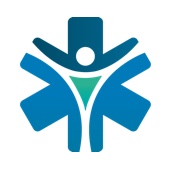Possible coronavirus treatment being researched

Dr. Michael Matthay started a clinical trial in January to treat respiratory failure before the public awareness about COVID-19 began to grow. He and his team shifted the focus so that now most of the patients in the trial are patients with the coronavirus. Indeed, many of them suffer from an acute respiratory distress syndrome, often called ARDS.
Moreover, this medical condition is the original reason for his research. The study applies mesenchymal stem cells intravenously to patients. Dr. Matthay believes inflammation can lower with stem cells. Indeed, the objective is to improve the patient’s condition to get off a ventilator and increase the chance of survival.
“They have multiple mechanisms of benefit,” Matthay said of the stem cells he is testing. “They reduce injury to the lung, whatever the cause — whether it’s bacterial pneumonia or viral pneumonia — and they seem to enhance the time to recover.”
In fact, Dr. Matthay has done extensive research on ARDS and COVID-19. His career includes 30 years of experience caring for patients afflicted by ARDS. The mesenchymal stem cells he is testing completed a safety trial in 2015 and another one in 2018. Besides, these cells are not rejected by the individual patient.
In addition, the California Institute for Regenerative Medicine, the state’s stem cell agency, provided $750,000 to include UC Davis and other sites. Dr. Carolyn Hendrickson, the trial’s site principal at the hospital confirms that 14 patients have started the trial at San Francisco General.
Furthermore, Dr. Matthay cannot guarantee success with the stem cells the team is using to treat these patients with COVID-19. “But it’s worth a shot”, said Jonathan Thomas, the board chairman of the regenerative medicine institute.
However, Dr. Matthay and his colleagues might not be able to scale up the therapy fast enough for the high demand that is probable. Nevertheless, there are many trials ongoing and there might be forthcoming news about other treatment options.
